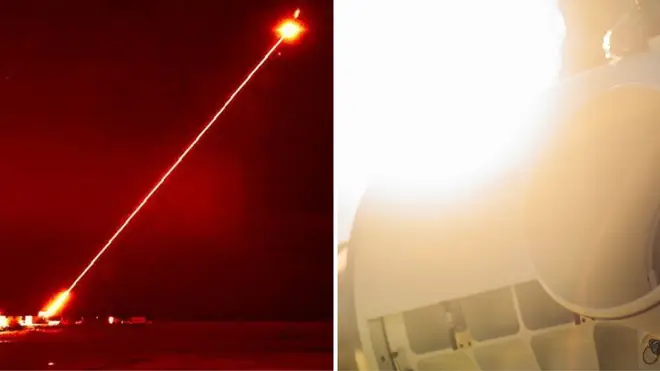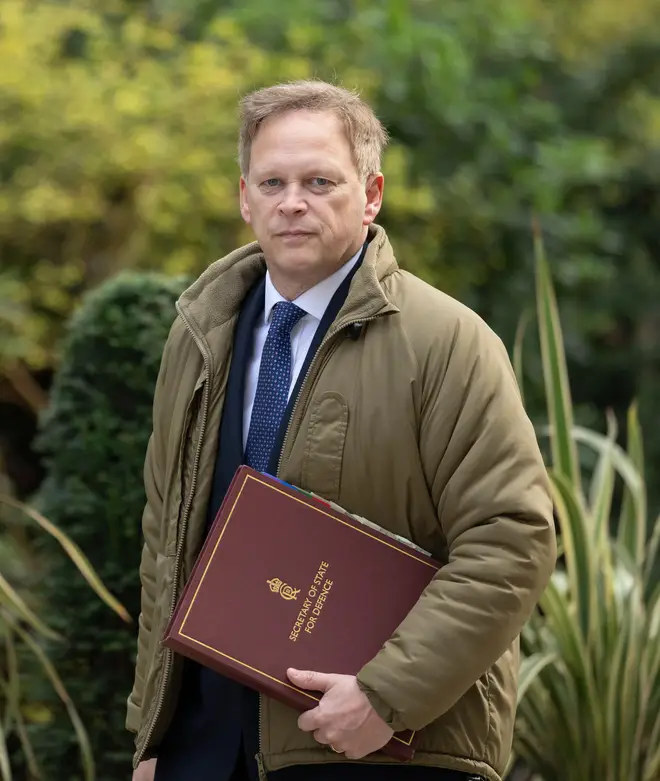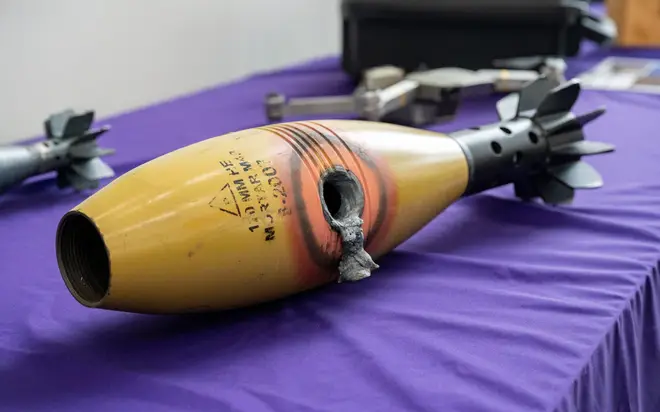
Iain Dale 7pm - 10pm
12 April 2024, 05:53

The British armed forces are working to bring a precision military laser into service early so Ukraine can use it to shoot down Russian drones.
The DragonFire weapon, which is expected to be in service by 2027 at the latest, can hit a target the size of a £1 coin from a kilometre away.
Reforms aimed at speeding up procurement mean that DragonFire will now be operational five years earlier than planned.
Defence Secretary Grant Shapps travelled down to the Porton Down military research base in Salisbury in an attempt to speed development up even further "in order for Ukrainians perhaps to get their hands on it".
"I've come down to speed up the production of the DragonFire laser system because I think given that there's two big conflicts on, one sea-based, one in Europe, this could have huge ramifications to have a weapon capable particularly of taking down drones," Mr Shapps told journalists.

"And so what I want to do is speed up what would usually be a very lengthy development procurement process, possibly up to ten years, based on my conversations this morning, to a much shorter timeframe to get it deployed, potentially on ships, incoming drones, and potentially on land.
"Again, incoming drones, but it doesn't take much imagination see how that could be helpful in Ukraine for example."
Laser-directed energy weapons can strike at the speed of light, using an intense light beam to cut through their target.
They are a lower-cost alternative to using missiles to strike down drones, costing only about £10 per shot.
Watch the first ever video of the UK’s laser weapon DragonFire
— Rt Hon Grant Shapps MP (@grantshapps) March 11, 2024
Newly declassified footage shows the power of the laser to cut down targets at the speed of light. pic.twitter.com/q5BBAx3P1t
Defence firms MBDA, Leonardo and QinetiQ developed DragonFire, along with the Defence Science and Technology Laboratory (DSTL).
The new procurement model, which comes into effect this week, is aimed at speeding up the process of getting cutting-edge developments in military capability like DragonFire out on to the field.
"It's designed to not wait until we have this at 99.9% perfection before it goes into the field, but get it to sort of 70% and then get it out there and then... develop it from there," Mr Shapps said.

Asked whether the system might be ready earlier than 2027, he said: "Because I'm here, I've taken the opportunity to arrange additional conversations with colleagues about whether we could speed it up even faster, very much using the integrated procurement model of saying there's a war on - let's say that it didn't have to be 100% perfect in order for Ukrainians perhaps to get their hands on it, can we do any better - but 2027 is still the date as of this moment.
"But of course I'll look to see what we can do to speed up."
Mr Shapps said: "In a more dangerous world, our approach to procurement is shifting with it. We need to be more urgent, more critical and more global."
DSTL's chief executive Paul Hollinshead said: "This is excellent news, and a real step forward in enabling operational advantage at pace for UK Defence.
"DSTL is all about preparing for the future and the DragonFire technology is a great example of that."